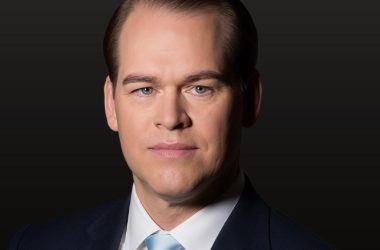Annual Counting and Tagging of Juvenile Wild Atlantic Salmon Shows Dramatic Decline in Numbers
Wednesday 26 November, 2025
The annual counting and tagging of juvenile wild Atlantic salmon on the River Frome in Dorset has revealed a concerning downward trend, with a dramatic decline in numbers of fish being captured for a second year in a row.
Since 2002, the Game & Wildlife Conservation Trust (GWCT) has been conducting a four-week-long study in late summer, catching, weighing, measuring, and microchipping juvenile salmon, known as parr. This is done to track the growth and health of the fish in this 35-mile-long south of England chalk stream during the winter and spring seasons.
However, this year, the GWCT’s Fish Research team was only able to tag 3,226 salmon parr, falling far short of their target of 10,000. This is a record low, following last year’s count of only 4,593 parr.
Will Beaumont, Senior Research Assistant at GWCT, led the fieldwork, which took place between 22 August and 17 September. He expressed his concerns, saying, “Last year was the worst we’ve ever had, but this year has been catastrophic.”
This decline in numbers is reflective of the overall trend across the UK and Europe, where the wild Atlantic salmon population has decreased by 80% in the past 40 years. This once-abundant species is now classified as endangered in the UK and on the IUCN Red list, along with other threatened species like elephants, pandas, and polar bears.
To understand the reasons behind this decline and work towards reversing it, the GWCT’s Fisheries Research department has been studying the health and lifecycle of the iconic salmon since 1973. They have been PIT tagging salmon since 2002, making the Frome monitoring program one of the most extensive and longest-running in Europe.
Dylan Roberts, Head of Fisheries at GWCT, explains, “This decline is alarming, and if it continues, salmon could disappear from our UK rivers in the next 30 years. It is also sadly reflective of what’s happening in other rivers in the UK and more widely in Europe. Almost all salmon rivers in England and Wales are classified as at risk by the government bodies.”
He also highlighted the various threats faced by salmon, including tougher conditions in the marine environment due to global warming and concerns over bycatch. However, he believes that improving conditions in rivers can help the species thrive and make them more resilient to these challenges.
Roberts adds, “My team has seen first-hand the changes to the physical nature of the river Frome. In recent years, we have seen a huge increase in the growth of algae, which smothers the riverbed, shades and reduces the growth of crucial habitats for juvenile salmon and their food sources. We’ve also seen an increase in sediment, which suffocates salmon eggs.”
He explains that excessive algae growth is due to high levels of nutrients like nitrate and phosphate, which are released into rivers from sewage, septic tank discharges, and runoff from agricultural land.
To reverse this decline, Roberts believes that collaborative efforts on a landscape and catchment-wide scale are crucial. This is something that the GWCT has been working towards for the past decade through farmer clusters and the Environmental Farmers Group (EFG).
Ian Baggs, a dairy farmer along the banks of the Frome, supports this approach and says, “I believe farmers are custodians of the land, and we have an obligation to do the right thing. It’s about securing the long-term sustainability of farming and the future of generations to come.”
Baggs has already taken steps to improve the health of the river by changing his farming practices, such as planting deep-rooted grass and rotating cattle to fresh pastures more frequently. However, he believes that adequate financial support and expert guidance are essential for farmers to do more.
The GWCT recognizes the critical role of farmers in improving the health of rivers and has been working closely with them through initiatives like farmer clusters and EFG. Colin Smart, from the Environmental Farmers Group Dorset, says, “We are planning to develop a catchment conservation plan for the Frome with advice and input from GWCT fisheries.”
He adds, “With a sufficient blend of investment from both the private and public sector, the catchment plan has the potential to reverse the catastrophic decline of salmon in the Frome, an indication of the poor health of the entire river system.”
The GWCT’s salmon monitoring work is part of a ‘Core Salmon Rivers’ research program, conducted in partnership with the Atlantic Salmon Trust and the Missing Salmon Alliance.
Clare Scott, facilitator for The Devil and Chesel Farmer Cluster in Dorset, says, “As facilitators, FWAGSW ensures that farmers have access to industry expertise and best practice guidance. Working together promotes group discussion and


